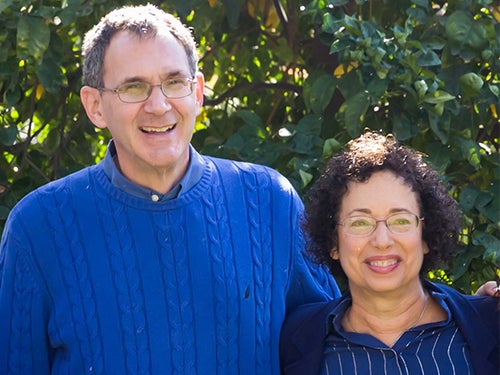 Ask Ed Stolper ’74, PhD ’79 why he and his wife, Lauren, established a Harvard charitable remainder unitrust (CRT), and he’ll list all the ways this life income plan makes financial sense.
Ask Ed Stolper ’74, PhD ’79 why he and his wife, Lauren, established a Harvard charitable remainder unitrust (CRT), and he’ll list all the ways this life income plan makes financial sense.
After careful research, he recognized that the CRT is a wise way of supplementing his income as he begins to plan for his eventual retirement. The investment also offers deductions that help to mitigate recent changes in federal tax laws. But at the heart of this decision? He wants to make a lasting contribution for the good of Harvard.
“Harvard prepared me to be a scientist,” he says. “It was a formative period in my life, and I owe a great deal of whatever success I have achieved in my career to my time there.” Stolper has spent his entire career at the California Institute of Technology, where he is the William E. Leonhard Professor of Geology and previously served as provost and as interim president.
His family ties to Harvard also run deep. His grandfather earned a PhD from the Graduate School of Arts and Sciences—at the age of 69. While an undergraduate, Stolper was in the marching band and met Lauren at the 1971 Harvard-Holy Cross football game. Their children, Jennifer ’05 and Daniel ’08, graduated from the College. Daniel also studied earth and planetary sciences, and Stolper wonders how many other parent-child concentrators in this field may have graduated from Harvard.
To aid future scholars, he has designated his gift to the Department of Earth and Planetary Sciences. “Academic institutions that want to be outstanding in research need discretionary funds that can be used at the department level,” he explains. “When scholars know there is money to support novel ideas, they are more likely to pursue them. I strongly believe that the availability of such funds stimulates creativity among faculty and students, which can help the department to soar.”
He sees a planned gift as both pragmatic and personal. “Harvard is more capable of investing this money than I am,” says Stolper. “You get a tax break, you and your spouse get the income for the rest of your lives, and you leave the corpus to the perpetual support of something worthwhile. Everyone benefits.”
For more information about charitable remainder trusts, please visit our webpage or contact the Office of Gift Planning.